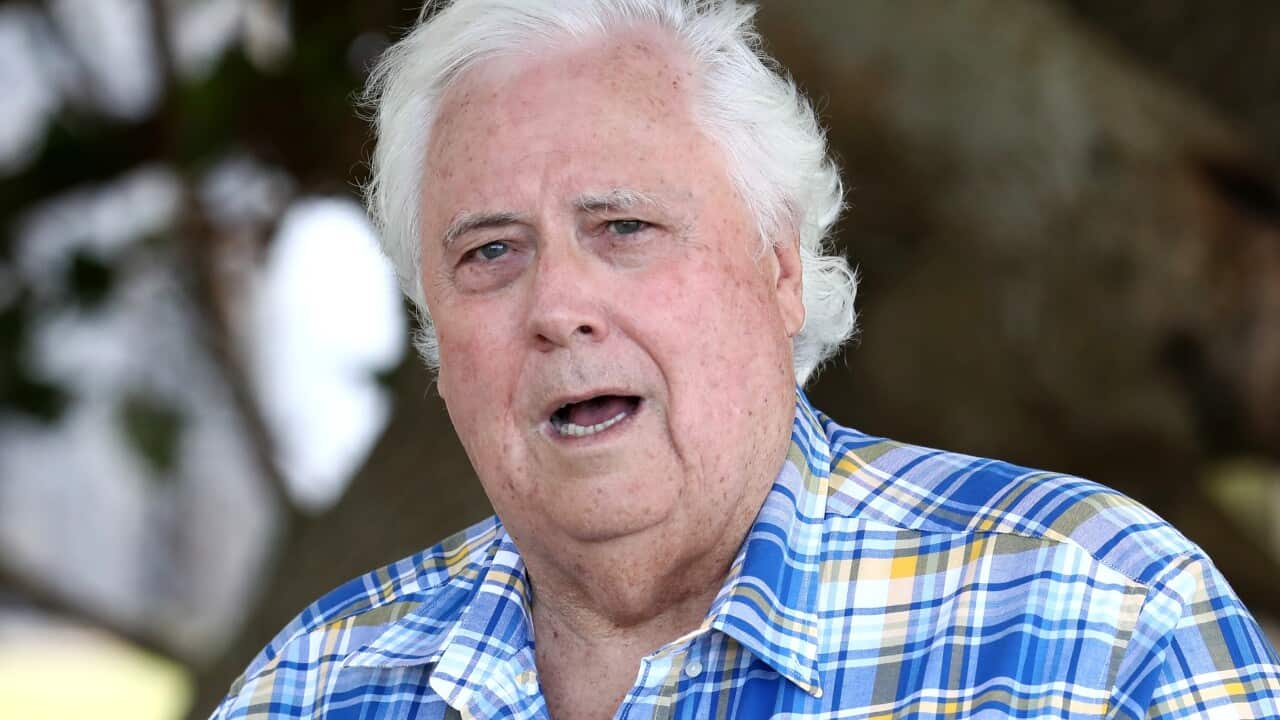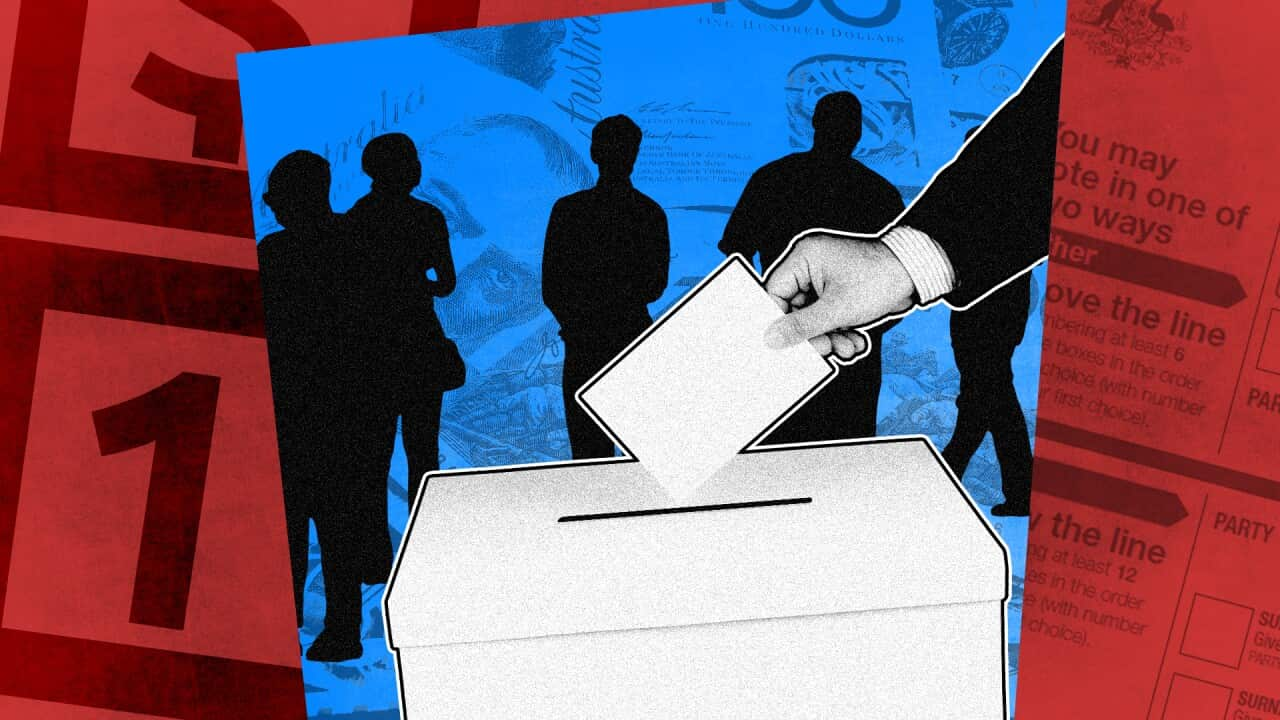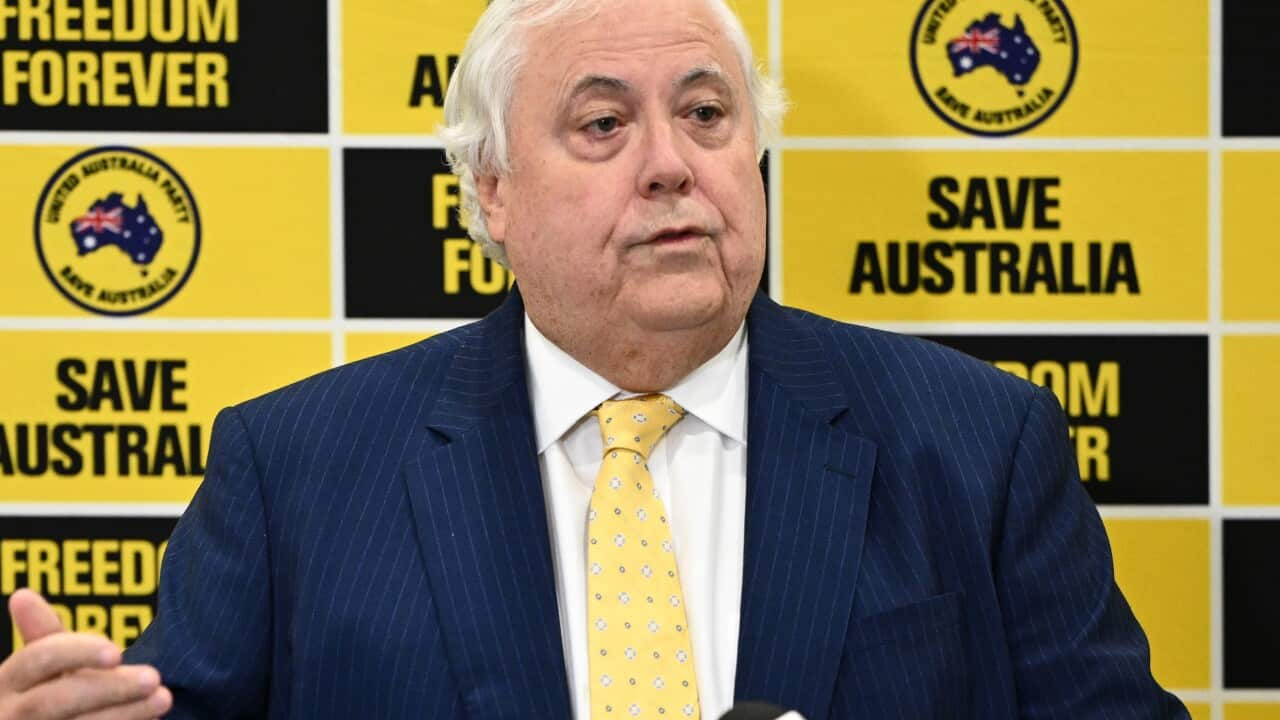Key Points
- Mining magnate Clive Palmer donated more than $7 million to the political party he founded.
- The 'big four' consulting firms gave hundreds of thousands of dollars to the major parties.
- The Australian Democracy Network highlighted that nearly a quarter of all donations came from undisclosed sources.
Mining magnate Clive Palmer donated more than $7 million into his party's political coffers, while the 'big four' consultants gave hundreds of thousands to major parties and environmental advocates dug deep in their pockets for teal independents.
On Thursday, the Australian Electoral Commission published data on donations made in the past financial year.
The register shows Mineralogy, the mining company owned by Palmer, donated $7,088,867 to the United Australia Party in 2022/23.
Perth-based company Hadley Holdings made two donations totalling $1,025,000 in November 2022.
The self-described anti-leftist political lobby group funded campaigning against the Indigenous Voice to Parliament referendum held in October 2023.
The Cormack Foundation, an investment company registered as an "associated entity" of the Liberal Party that is typically its largest single donor, gave nearly $3.5 million to the party.
Anthony Pratt's company Pratt Holdings donated $1,010,500 to the Labor Party in January and March of 2023, with $500 sent to the NSW branch.
Consulting firm PricewaterhouseCoopers, which leaked confidential tax office information in a major scandal, made a series of donations to both the Labor and Liberal parties between July 2022 and May 2023.
PwC gave around $224,000 to Labor and nearly $146,000 to the Coalition. Australia's other large consulting firms also gave money to the major parties.
Ernst & Young donated $227,853, with more than three quarters of that going to Labor. Deloitte donated $177,126 and KPMG $163,200, both slightly favouring Labor.
Climate 200, a company that provided funding to the campaigns of the so-called 'teal' independent candidates at the 2022 federal election, received major personal donations.
Environmental advocate Marcus Catsaras stumped up $1 million to the climate advocacy group.
Share trader Rob Keldoulis made a number of personal donations worth $702,113 to Climate 200 between 22 October and May 2023.
Meanwhile, his company Keldoulis Investments also supplied cash to the tune of $365,430 to the group.
Mining magnate Gina Rinehart, Australia's richest person, donated $150,000 to the Liberal Party via her company Hancock Prospecting.
Parties and individuals are required annually to disclose donations of more than $15,000 under current rules.
Integrity advocates, including the think tanks Centre for Public Integrity and Australia Institute, have called for reforms to address record-high election spending and donor transparency.
Analysis by the centre in 2023 found election spending had increased by almost 85 per cent in the past two decades.
In 2022, the most recent federal election year, spending reached a record high of almost $440 million, and the top five individual donors contributed 70 per cent of all donations.

Australia Institute director Bill Browne said there was limited time for changes relating to political donations to come into effect ahead of the next federal election. Source: AAP / Supplied
Australia Institute director Bill Browne said the electoral commission's annual release highlighted the lack of transparency and integrity in Australian politics.
"We are learning today whether businesses made political donations 18 months ago," he said.
"These lags and other loopholes make it difficult to see how politicians and political parties are being funded and by whom."
The institute wants real-time donation disclosures introduced, a lower donation disclosure threshold and ministerial diaries to be made public.
This would reveal if there were any connections between political contributions and political access.
Browne said there was limited time for changes to come into effect ahead of the next federal election.
"This is a wake-up call that 2024 is the last chance for meaningful democratic reform ahead of the 2025 election," he said.












